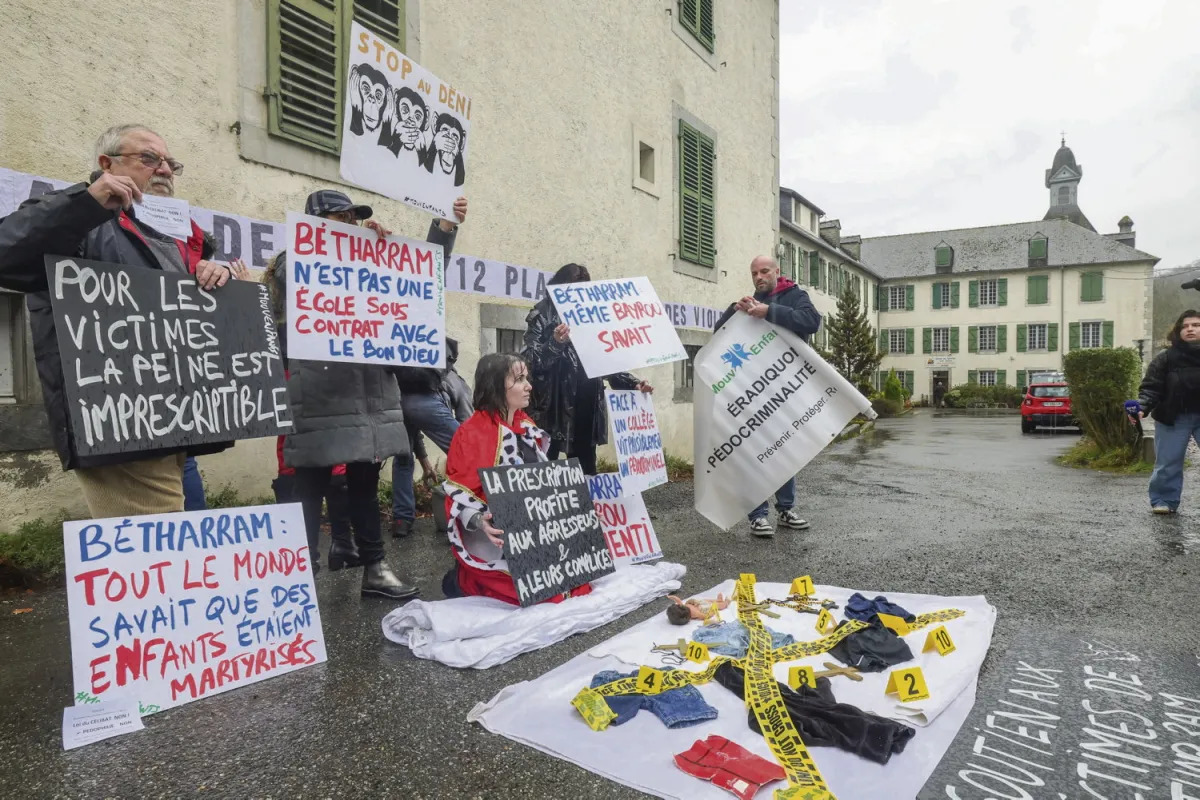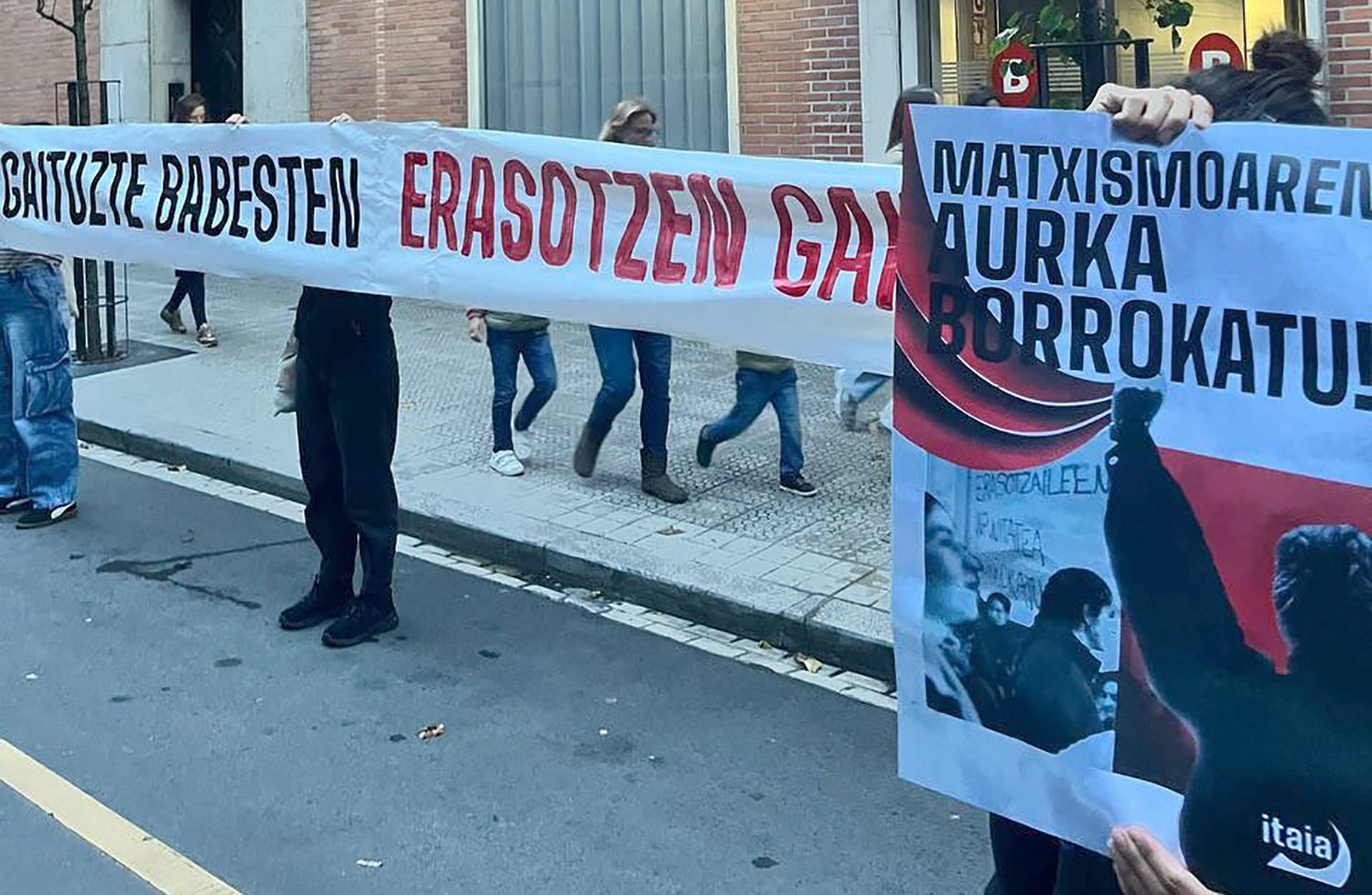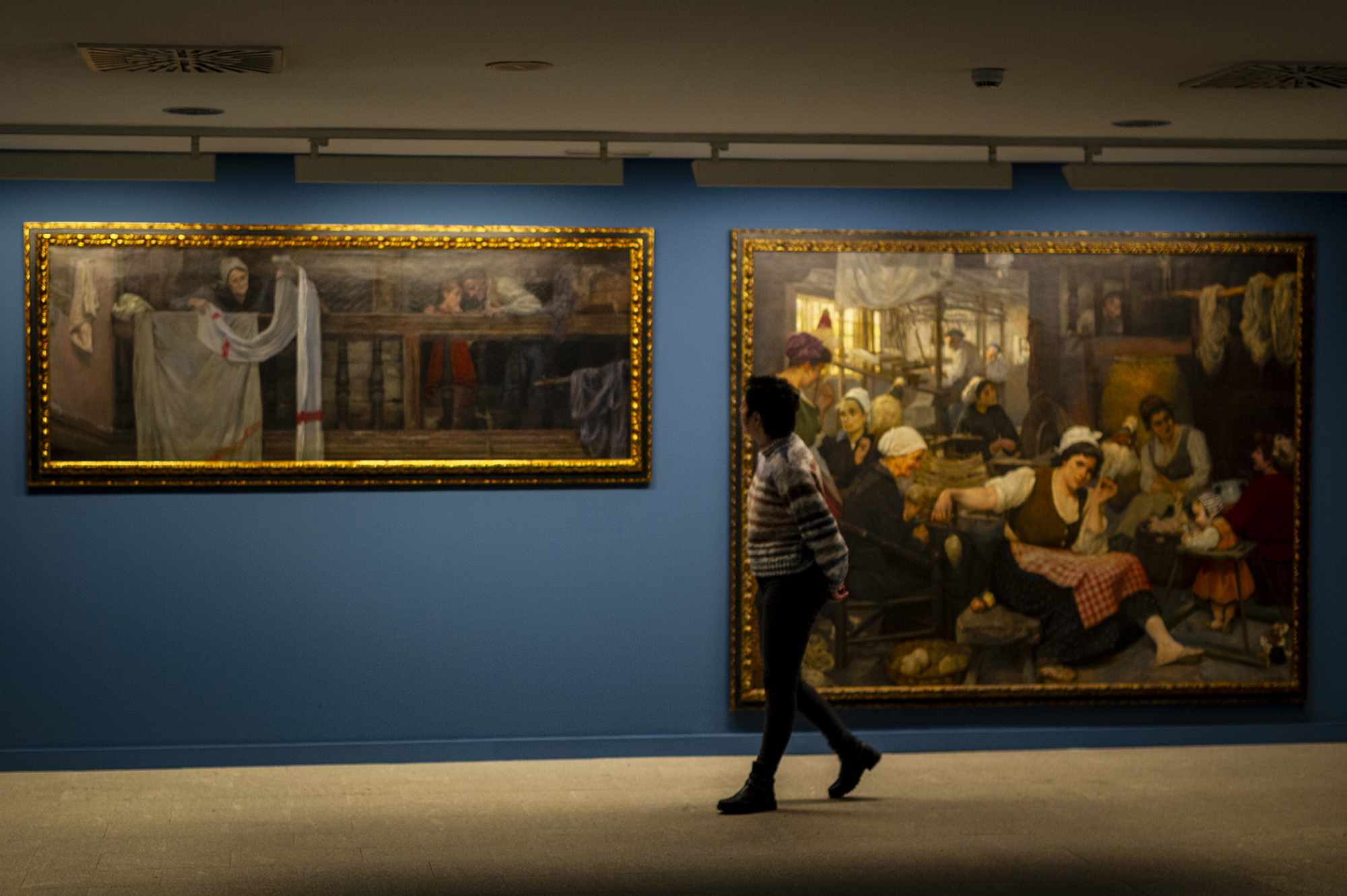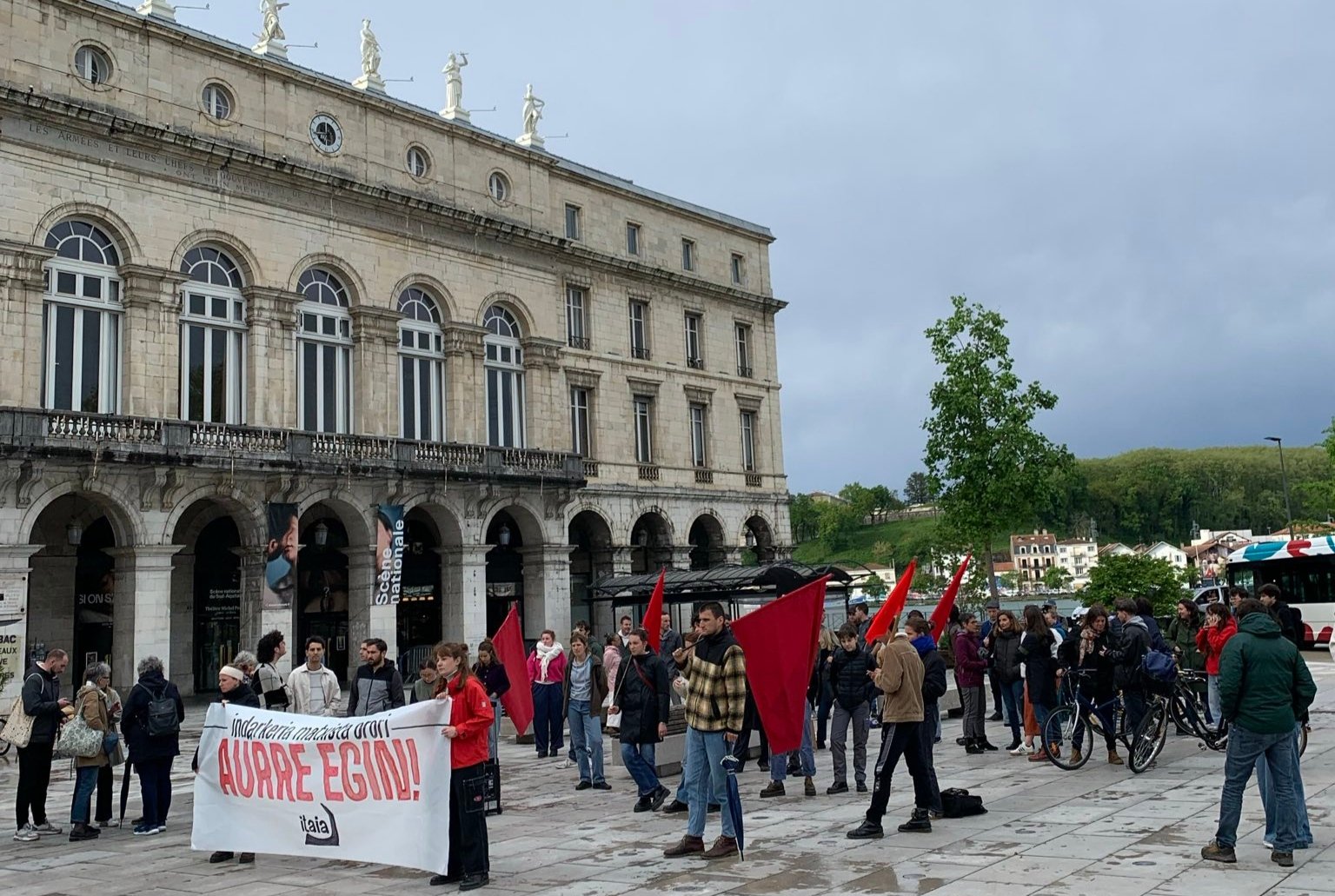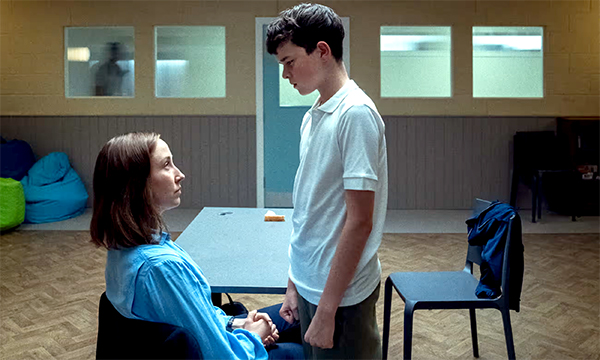"Before men, the bourgeois class will give up its privileges"
- Jokin Azpiazu Carballo considers it important that everyone shows where they speak. He is working from his reflections and actions in the academy, in the street, in the bars. From the relations and militancies developed with feminisms, LGTB+/queer movements and groups of men. In the book Masculinities and Feminism proposes to approach masculinity from privilege and power [here in PDF].
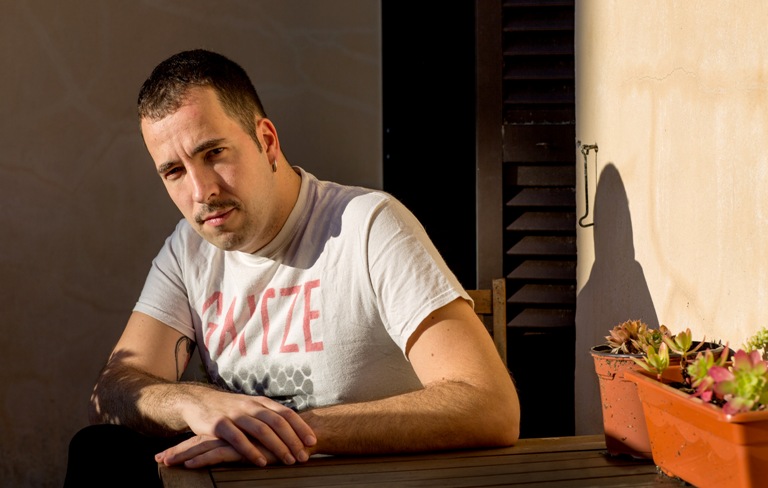
What drove him to write the book? Who is it aimed at and what would you like it to create your readings?
The goal of the book is not for anyone to read it. We have tried not to be too academic, without concealing the complexity of the reflection at the same time. The idea is that people who have been around this topic have one more tool. It will be read comfortably from the point of view of intelligibility, but also from the point of view of discomfort. With affection, always. So, yes, surely there is more aimed at men interested in feminism, women and people of nonbinary genders who work in feminism, and generally people related to social transformation. It's not written in the key of "masculinities for all."
What is the political framework of the book? You've ever said that men are a social class.
"For me masculinity is not so much something that defines me as something identity, but something that marks my position of power"
It is a very big and round statement. So, not entirely true, not entirely false. I wanted to take this opportunity to turn to a trend in recent years. The discourse of virility is focusing a lot on identity. Transformable, in transformation, etc. For me, masculinity is not something that defines me so much from an identity point of view, but something that marks my position of power. And that can mark my identity. But I didn't want to put the starting point in identity, but in power.
Once I read to him “there is hardly any history that has voluntarily renounced his privileges.” Is there any reason to believe that men can be an exception?
In any case, on the contrary. I have more reason to think that the bourgeois class will give up its privileges than men. That's what I tell you. We are coming to a very funny political moment, it seems that from different positions we make a recognition of privileges: “I know I’m a privileged person for being white, for being a man, for being a tar tar tar.” Only with that will we go nowhere, if we do not take concrete action. We have to listen to the measures proposed by the feminist movement and make them our own.
The men we consider to be left-wing, are they different?
"We don't like something to question our role as a victim, we don't want to grab him."
Left-wing movements have a certain history and genealogy. For example, the idea of victimization is fundamental: we come together because we suffer from oppression and we want to turn it around. We identify with the role of the victim. In the last few decades, life has complicated us. Because from decolonial feminisms or looks, for example, we have been asked that it is not so clear in all dimensions and at all times to present ourselves as victims. Men's resistance to accepting power relations in left-wing movements derives from our privileged central position. We don't like something to question our role as a victim, we don't want to grab ourselves.
In Euskal Herria, there has been a multiplication of groups of men who want to work masculinity. What do you think of them?
"The ideal would be not to make political proposals that do not go through the body and not to try to make policies in the body if they do not have the potential to go out into the street"
It is very difficult to have a concrete opinion on such a plural and broad reality. It is a pity, but the movements that are most evident are those that have to do with the institutions. The autonomous group, formed around the Gaztetxeak, which was born in parties or leftist movements, has shown more difficulties for continuous work. There are proposals from end to end, and some are more interesting than others. On the one hand, those who look very inwards. Performing an almost psychological work of introspection in the search for the mandates of virility for its dismantling. On the other hand, those who are somehow motivated to have more influence in the collective sphere. I understand that there is still no great balance between these two poles. The ideal would be to get to everything: not making political proposals that don't go through the body, and not trying to make policies in the body if they don't have the chance to go out into the street.
The man who wants to fight machismo and patriarchy, what relationship should he seek with feminism? He says in the book that critical gaze outside feminism is essential.
I should look for a complex relationship. I think there are many secrets to complexity. And at the same time, complexity cannot lead to paralysis. Because it happens many times. We need to ask ourselves what feminism tells us, personally and collectively. You have to read it, but it's not enough. Feminism passes through bodies; it's a political proposal; it's a movement. By breaking down three dimensions. What should we stick to? Well, probably, all of this. This puts us in a continuing deficit, because, whatever the situation, more is needed in everything. And that deficiency isn't bad, it can be the engine.
.jpg)
Lately, there has been a multiplication of macho aggressions in popular movements and their spaces. What attitude are we men having?
"[In the face of the Machian aggressions, men] we take two main positions: One, denial. And the other one, sharpen the knives immediately. Here we men are being quite skilled, making them understand that attacks are being done by others and not by us."
For starters, we're scared to death. Although feminism has often pointed out this issue to us, there are many of us who still do not want to believe that these things happen in our spaces. What do we do in the face of scare? I identify two main positions. One is denial. It tells us to what extent we understood the feminist policies that we applaud with extended hands. It also uncovers how the complicity of men is on the left, based on silence and mutual support. The other side of that coin is to sharpen the knives immediately, as many men do. So let's fall into immediacy and the paradigm of condemnation. Here we men are being quite astute, making them understand that attacks are done by others and not by us. By dangerously concealing what this problem has of structure and what happens in our structures so that this is possible. In a nutshell: when a man from our group assaults and has characteristics that make crucifixion possible, we point to lynching. When that person is very emblematic, when she's very comrade, we don't.
If a man has been attacking another person in two years, the question cannot be whether we will hang the guy from any mast. But how it is possible that in a movement on the left there has not been a space to deal with these issues. We are responsible not only for dealing with attacks, but also for creating the conditions for this not to happen. These conditions do not currently exist in popular movements.
Some feminisms have opted for intersectionality. Does questioning masculinity also require intersectionality?
Yes, it is absolutely essential. At the same time, be careful. Because there's a curious tendency, to be paralyzed with the wall of immersing itself in complexity. The new wave or the postmodern wave is also scary to me. To be an intersectional view is not to keep everything in mind at all times, but to make concrete analyses for the transformation from which everything is at stake. For example, I think that at school we cannot talk about masculinity without addressing race, because the discourse of many young people is that some people are potentially macho because of their origin and to dismantle that it is essential to put racism on the table. Or perhaps without taking into account the national perspective in the field of popular movements. Look at what has happened in Pamplona: how easy it is sometimes for us to shake up our responsibilities by saying that the rapists are civilian and military guards coming from outside.
What kind of man is organizing around masculinity?
People who organize themselves into social movements are not the most faithful representatives of the reality they always work. That is also repeated in the history of the movement of men. There are people who come from a pretty high level of reflection, older people, economically comfortable. It's a very white, heterosexual movement.
It's also very heterosexual because the theme chosen is very heterogeneous. Paternity, sharing of domestic tasks, violence against women... That doesn't mean we don't have anything to do with all of that, of course. I don't know anybody who has pushed questions about violence towards the men that we relate to, and it's necessary, because it happens, both against our partners and against women. The male movement's interest in the LGTB+ movement is negligible.
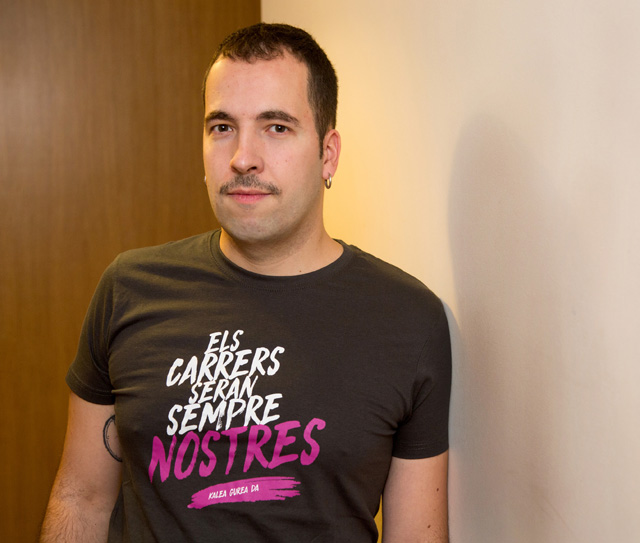
It proposes productive discomfort.
"Men need spaces to be able to talk about these issues. Once created, we cannot leave more comfortably than we have entered into such a discussion."
Men need spaces to talk about these issues. Once created, we cannot go out more comfortably than we have entered into such a discussion. Just as we need safe, quiet and trustworthy spaces for a thorough review of these attitudes and positions, we cannot limit ourselves to the mere premise that these spaces are comfortable and quiet. We have to look at the pedagogy that we practice. To think about whether really the pedagogy that is done from the smile or kindness is just useful. Or do a pedagogy and a self-bedagogy that goes through pain, our position of power, discomfort, loss...
Do the virility movements place too much emphasis on the victim role of the system?
"If we recognize that gender equality imbalance is brutal, we will have to admit that at times they will listen to us in the face"
The truth is, I have a lot of doubts about this. Of course, my thought has always been to move from radical anarchism to reformism, because for me it is important to live the two places. I believe there is a need for a number of elements to bring about a desirable and interesting change for men. But I'm afraid of where that can end. For example, in those policies of sexism and homophobia that are developed in schools, the kids say they are very comfortable. If you say you're all happy, but if no one says you're an aggressor, for example, I guess something or someone is hiding. My feeling is that we don't make enough noise when addressing men. If we recognise that the imbalance in gender equality is brutal, we will have to acknowledge that at times we will have a whistle on the face.
FACTSHEET OF THE BOOK

Author: Jokin Azpiazu Carballo.
Editorial: Virus.
Free license.
Written in Spanish, although he is conducting all his research in Basque: “At the request of the publisher. I do not intend to translate to Euskera, but if someone is encouraged, they have a free license.” Here's the invitation.
Irungo Landetxa auzoko pala txapelketa mistoan, hogei bikotetik bakarra da emakumeek osatua, 40 lagunetik bi baino ez dira emakumeak: Idoia Karrera eta Loiola Zuazu. Lehiaz, txapelketa misto eta ez mistoen arteko aldeez eta joko-mailaz mintzatu gara haiekin. "Emakumeok... [+]
Aspaldi pertsona oso zatar bat ezagutu nuen, urrun izatea komeni den pertsona horietako bat. Bere genero bereko pertsonengana zuzentzeko, gizonezkoengana, “bro” hitza erabili ohi zuen. Edozein zapaltzeko prest zegoen, bere helburuak lortzeko. Garai hartatik hitz... [+]
La bajona kolektibo kide Heiko Elbirak salatu du psikiatriak zisheteroarautik aldentzen diren erotikak kontrolatu nahi dituela.
Prentsaurrekoa eskaini dute ostegun honetan Marc Aillet Baionako apezpikuak, elizbarrutiko hezkuntza katolikoko zuzendari Vincent Destaisek eta Betharramgo biktimen entzuteko egiturako partaideetarikoa den Laurent Bacho apaizak. Hitza hartzera zihoazela, momentua moztu die... [+]
Antifaxismoari buruz idatzi nahiko nuke, hori baita aurten mugimendu feministaren gaia. Alabaina, eskratxea egin diote Martxoaren 8ko bezperan euskal kazetari antifaxista eta profeminista bati.
Gizonak bere lehenengo liburua aurkeztu du Madrilen bi kazetari ospetsuk... [+]









